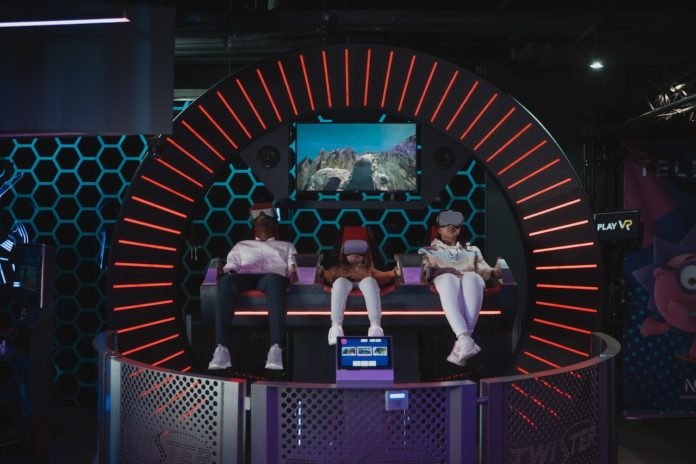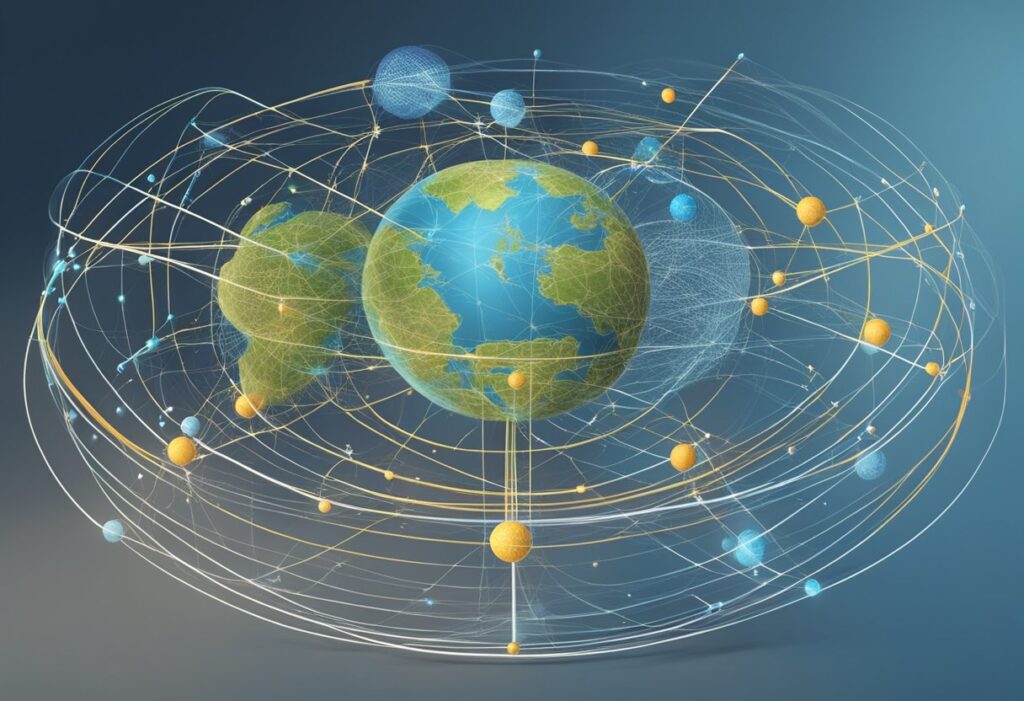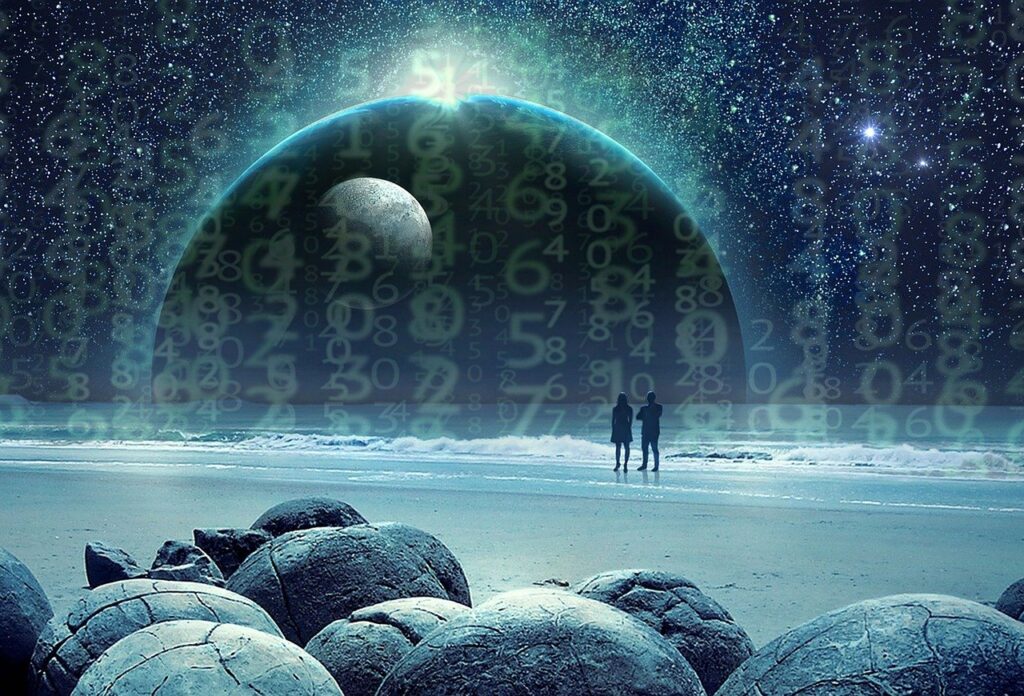
You’ve probably heard of the idea that we’re all living in a computer simulation or in matrix. On a typical day, your seemingly tranquil life was disturbed by the bizarre concept, whether it came from a curious buddy or the nameless creator of an intriguing sign outside your neighborhood cafeteria.
What is real? Numerous people have been perplexed and amused by this question. Humans can directly perceive only a tiny portion of our environment. Reality appears to be quite constrained from a personal perspective.
While none of them are inevitable, they are all plausible — and one of them might even be the most likely outcome. Although it’s a challenge to comprehend, the argument has some logic.
In this article, you’ll read more about whether the possibility of ending up in a computer simulation is even a fraction of what reality holds.
What Does Living In Computers Mean?

The idea that the Earth and the world are artificial simulations, probably computer simulations, is known as the “simulation hypothesis” or “simulation theory”. Some variations focus on the creation of a simulated world, a method that is suggested as being convincing enough to persuade its users that it is genuine.
There are various theories and interpretations of computer simulation in quantum physics, neuroscience, and philosophy because our knowledge is still developing.
So, will our quantum-scale modern future processors be so strong that the simulations they produce have intricacies as rich as our natural world?
Will there be virtual worlds with virtual residents creating their unique activities and speculating on the future?
We can suppose an infinite number of simulated universes exist if humanity even managed to make one. Who is to say that we are living in a standard, authentic actuality?
A non-simulated world called a grounded reality might not be in the books for us.
You ask, “Well, what are the chances we’re in a simulation?”
Studies on the precise likelihood of that result are ongoing; one such study is this one from the previous year. In contrast to Bostrom’s first, intuitive prediction of one in a billion or so, more recent research indicates that the probability of existing in a computer-based world may be closer to 50-50.
How Can This Happen?
With this much processing capacity, computers might also be capable of unbelievable things. Recent advancements in AI development seem to suggest that they wouldn’t have any trouble simulating a mind, perhaps a super-intelligent brain, if they could simulate a world.
We would view such a superior AI as divine, and its decisions may be beyond our comprehension or ability to influence them.
These worries about a “technological singularity,” when advancement becomes unstoppable and irreversible, neglect the larger and authentic world in which we live and the issue’s complexity.
The case made by Bostrom is intriguing.
First, Bostrom advises assuming that technology would advance to the point where we can simulate a world, possibly even a duplicate of our own. When humans harness our knowledge of biology and technology to become transhuman, this might be the pinnacle.
According to Bostrom, if we can simulate the cosmos, we will do so. Furthermore, we would presumably build as many simulations as possible for various purposes, including learning more about our world.
The following assumption is that the virtual residents of the simulated universe share traits with humans, such as consciousness, but are ignorant that they are inside a simulation. According to Bostrom, it is improbable that we aren’t presently living in a computer simulation if this is technologically feasible.
This is due to the fact that we cannot presume that some other sentient species, whether human or not, has not already achieved that technological milestone and produced the simulation in which we currently live.
Everything we can see and test would be contained within the simulation, leaving us with no indication that our reality is anything more than a collection of ones and zeroes.
The idea that our Universe might be a simulation inside another simulation and that we might be able to make our simulations is even more perplexing. It becomes a disorienting collection of world-nesting dolls, each encased inside another.
Many of current science theories demonstrate that our Universe is a computer simulation and that we are not biological entities but computer programs.
The “Simulation Argument,” put out by philosopher Nick Bostrom in 2003, is among the most well-known of these hypotheses. His hypothesis is that humanity might be a component in a computer simulation made by a more developed civilization.
In addition, Stephen Hawking accepted the validity of simulation theory.
However, nothing is 100% given.
The Universe, consisting of 1082 atoms in its visible portion, formed in 13.8 billion years. This difficulty requires a lot of resources, expertise, and time to simulate.
Resources on our planet are few. And even if we had the technology and computers, running the simulations might require billions of years.
What would motivate us to do that?
Within the next few centuries, we’re more likely to develop teleportation or synthetic gravity than to simulate entire universes or highly advanced brains. And it’s much more likely that climatic catastrophes will cause us to perish long before that.
Reasons Why Living In A Computer Simulation May Be Impossible

Below are some reasons why living in a simulation may be impossible.
- The Cosmos Includes The Computer.
The cosmos and the computer used to mimic it are components of the Universe. The computer should thus simulate itself to represent the entire cosmos accurately.
Additionally, the computer must execute a perfect Universe simulation while simulating itself. This, if it is ideal, must also include a computer simulation.
As a result, the simulation must consist of the computer simulating the rest of the Universe, which in turn must have the computer simulating that Universe, which must… and so on indefinitely.
- Most Likely, The Cosmos Is Limitless.
Directly observing an infinite item in a finite time is theoretically impossible. Nevertheless, if we mathematically approximate infinity using a restricting process, we can infer that an element is indefinite.
For example, it is inferred that the electric field produced by an electric point charge spreads out indefinitely in all directions. Humans cannot directly perceive this infinite-extent aspect of the electromagnetic field, but it can be inferred.
This technique, called “infinite recursion” in computer science, results in your computer locking up and never moving forward with its computations. Consequently, a computer simulating its universe will never be able to simulate the rest of the universe accurately.
- The Universe As A Whole Is Not Something That We Can Know.
We can only know about the regions of the Universe that are near enough. So, sufficient time has passed since the Big Bang for the sunlight from these regions to approach us. This is because of the limited speed of light and the reality that nothing can move faster than light.
This region of the cosmos is referred to as the “visible universe.”
Essentially, we are not allowed to have any knowledge of the parts of the cosmos outside of the visible realm. However, if we hang around for a long time, these areas could still influence our observable universe and alter its course.
Conclusion

So, here you go. The Earth is our sole habitat; whether it is simulated or not makes no difference. Instead of obsessing about ridiculous science-fiction possibilities of the far future, perhaps we should concentrate on the technologies that are endangering life.
Without a future, there would be nothing to fret over.




























